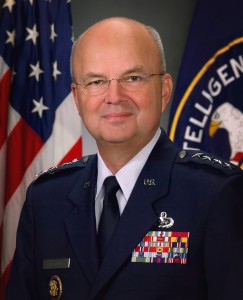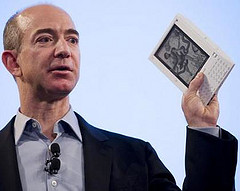For a certain class of journalists in the United States — a dwindling class, I think — the following holds true:
Alongside the production of news and commentary about American politics they feel compelled to reproduce their own innocence. What I mean by “innocence” is a public showing by professional journalists that they have no politics themselves, no views of their own, no side, no stake, no ideology and therefore no one can accuse them of — and here we enter the realm of dread — political bias.
I have written about the production of innocence before…
The quest for innocence in political journalism means the desire to be manifestly agenda-less and thus “prove” in the way you describe things that journalism is not an ideological trade. But this can get in the way of describing things!
I think it is proper that we call this quest an agenda, even though “agenda” is a loaded and abused term. The innocence agenda undermines the product. News and commentary, the picture we get of what is happening in the nation, can be fatally distorted by the journalist’s need to demonstrate even-handedness.
Here’s another problem. In the self image of the professional journalist, nothing can ever come before truthtelling, almost by definition. Because it violates this sacred and absolute rule, the production of innocence is shrouded in denial, defensiveness and mystification. We cannot have a rational conversation with the people who practice it because to admit that they practice it would be, in effect, to resign from their profession. This they refuse to do.
And so silence is the sea on which the entire subject floats. The practitioners don’t defend their practices, but that is the least of it. They won’t identify themselves as practitioners in the first place. They are tenacious in holding to the pattern, but they cannot describe, illuminate or justify the pattern because this would be to concede that “telling it the way it is” is a priority modified by other and greater priorities— like “making it super clear that we take no side.”
To admit that is to admit that you are a shill, a mouthpiece.
But here comes the confusing part. For in the production of innocence you are not a shill or mouthpiece for someone else: a company, a political party, a powerful interest… but for a certain image of yourself as “above” all that. You are a propagandist for a personal conceit. The conceit is that you can report and comment on politics truthfully while always and forever splitting the difference between the two sides so as to advertise your own status as perpetually non-aligned.
What if that is not even possible? What if you have to risk the appearance of being partisan in order to describe accurately what is going on in a hyper-partisan situation? And what if you are risk adverse? As in the case of Time magazine, the PBS Newshour, NPR and CNN, just to name a few homes for the style I am describing. In a situation like that, you are going to fall back on the easy production of innocence, but you are not going to recognize that this is what you are doing.
I bring up this messy and confusing subject for reasons that are probably obvious to anyone paying attention to political news this week. The shutdown of the Federal government is one of those events where the temptation to advertise your own innocence is almost overwhelming… for a certain kind of journalist.
For more on this problem see James Fallows in the Atlantic: Your False-Equivalence Guide to the Days Ahead.
Also see Dan Froomkin: Shutdown coverage fails Americans.
The quest for innocence in political journalism means the desire to be manifestly agenda-less…
The Washington Post feels that desire. Here are some of the results:
In The inability to come together to do the right thing, Democrats and Republicans united: It’s the other side’s fault
Even before much of the federal government shut down at midnight Monday, the players were already staking out their positions in the battle to come: the fight over who was at fault.
President Obama argued that Republicans were to blame, for using a budget bill as a means of extortion to roll back health-care reform. No, the GOP shot back, it was Obama and Senate Majority Leader Harry M. Reid (D-Nev.) who were responsible, for refusing to negotiate.
The Post really feels it, part two:
Shutdown crisis shows Washington breakdown
Washington once again stands at a moment of crisis — only this time, Democrats and Republicans are not negotiating a way to avoid it. They are not even speaking to one another.
The cumulative effect of almost three years of governing by near-death experience is becoming clear.
Instead of bringing a resolution, each close call has left the parties further apart. These wrenching standoffs have only made them more entrenched. Their focus now rests almost exclusively on what cannot be reconciled and on scores to be settled, rather than on areas where they might actually find common ground.
Cokie Roberts of NPR feels it, as well. Here is her analysis of the situation:
I think that we’re seeing a real breakdown of government operations in Washington. The inability to come together to do the right thing in terms of the country is really dramatic now. And we’ve seen this before in our history, but this is a period that is very rough.
At Time magazine agendalessness is always on the agenda. Their take:
Shutdown: Obama and Republicans Trade Blame as Deadline Is Crossed
Federal agencies were ordered to beginning shutting down late Monday evening amid finger-pointing between Democrats and Republicans as to who was responsible for the United States’ first government stoppage in 17 years.
What unites these treatments is the eagerness to blame both sides. The emphasis is on things like “the inability to come together to do the right thing” and other hyper-symmetrical images like the “shutdown blame game” and “finger-pointing between Democrats and Republicans.”
That is the innocence agenda at work. What those involved in it fail to acknowledge is their own investment in a permanent and unyielding image of political symmetry. But I think the high point has passed for this kind of reporting. It still exists, and deserves to be called out, but with the critique of “false equivalence” now a part of the journalist’s daily life and the rise of point-of-view reporting to normal status online, the artifice is shakier than ever. New entrants like the Guardian’s U.S. edition and aggressive newsrooms like ProPublica and McClatchy’s Washington bureau simply don’t treat the production of innocence as important. Eventually it will be seen as dragging the quality of news down, and the best people will be embarrassed to practice it.
So let Cokie Robetts wax on about “the inability to come together to do the right thing.” Meanwhile, the AP’s David Espo described the situation fairly without resorting to claptrap like that.
Time running short, the Democratic-controlled Senate passed urgent legislation Friday to avert a government shutdown early next week, and President Barack Obama lectured House Republicans to stop “appeasing the tea party” and quickly follow suit. Despite the presidential plea – and the urgings of their own leaders – House GOP rebels showed no sign of retreat in their drive to use the threat of a shutdown to uproot the nation’s three-year-old health care law. (Hat tip, Media Matters.)
When you know what you’re talking about, you don’t need to advertise your own innocence. 



